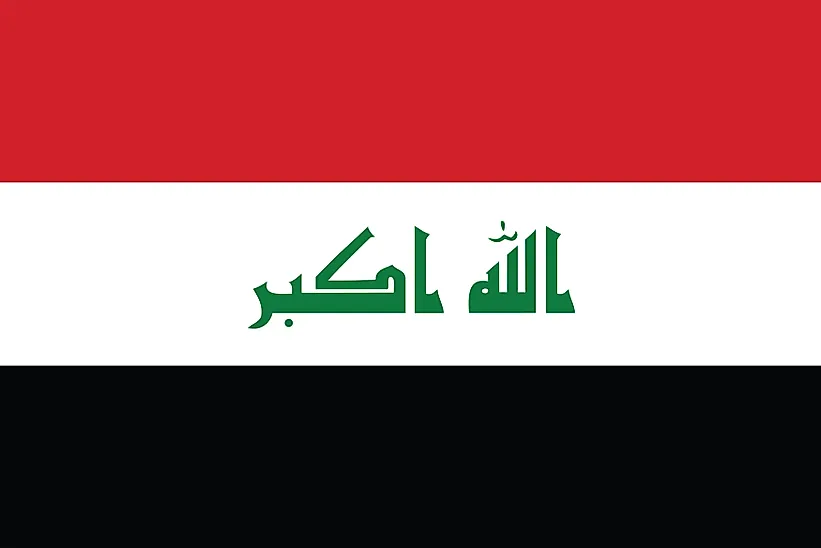
Iraq
| Continent | Asia |
| Capital | Baghdad |
| Population | 38,146,025 |
| GDP | $597.00 Billion |
| GDP per Capita | $16,500 |
| Dialing Code | +964 |
| ISO Code (2-letter) | IQ |
| ISO Code (3-letter) | IRQ |
Iraq Landscapes






About Iraq
Welcome to Iraq, a nation where human civilization first flourished in ancient Mesopotamia. With approximately 40 million people occupying 438,317 square kilometers, Iraq combines profound historical significance with rich cultural diversity, standing as the birthplace of many world-changing innovations including writing, agriculture, and urban living.
Geographic Features and Natural Beauty
Iraq’s geography is defined by the Tigris and Euphrates rivers, which created the fertile region historically known as Mesopotamia (“land between the rivers”). The country features diverse landscapes from the marshlands of the south to the mountains of Kurdistan in the north.
The landscape includes the vast Arabian Desert in the west, the fertile river valleys, and the Zagros Mountains along the northeastern border. The Iraqi Marshlands, recently restored after historical drainage, represent a unique ecosystem and the home of the Marsh Arabs.
Protected areas include the Central Marshes National Park, preserving the restored wetlands that are both ecologically significant and culturally important as the possible site of the biblical Garden of Eden. The country’s varied geography supports diverse ecosystems from mountain forests to desert wildlife.
Cultural Heritage and Traditions
Iraqi culture represents one of humanity’s oldest civilizations, with traditions spanning millennia. The country’s heritage includes the achievements of Sumer, Babylon, Assyria, and the Islamic Golden Age, particularly during the Abbasid Caliphate centered in Baghdad.
Traditional arts include pottery making, metalwork, carpet weaving, and calligraphy. Music maintains both classical Arabic traditions and distinctive regional styles, while architecture ranges from ancient ziggurats to medieval Islamic monuments.
Iraqi cuisine reflects its historical depth, featuring dishes that have evolved over thousands of years. Traditional crafts include copper work, textile weaving, and leather working, while literature encompasses both ancient epics like Gilgamesh and modern poetry.
Historical Journey
Iraq’s history spans from the world’s first cities like Ur and Uruk through various empires and civilizations. The region saw the development of writing, legal codes, mathematics, and astronomy, profoundly influencing human development.
Significant periods include the Sumerian civilization, Babylonian Empire under Hammurabi, the Islamic Golden Age centered in Baghdad, Ottoman rule, and modern state formation. The country’s role in human civilization’s development remains fundamental to understanding world history.
Modern Economic Landscape
Today’s Iraqi economy combines significant oil resources with agricultural and industrial potential. The country possesses the world’s fifth-largest proven oil reserves while working to diversify its economy.
Recent initiatives focus on reconstruction, infrastructure development, and economic diversification. Iraq’s young population and natural resources present opportunities for future development despite current challenges.
International Relations and Global Position
Iraq maintains active participation in regional and international organizations while working to strengthen its position in global affairs. The country’s strategic location and cultural heritage contribute to its regional significance.
Did You Know?
• The world’s first writing system, cuneiform, was developed in ancient Sumer?
• The Code of Hammurabi, one of the earliest legal codes, originated in Babylon?
• Baghdad was the world’s center of learning during the Islamic Golden Age?
• The Epic of Gilgamesh, the oldest known literary work, was written in ancient Iraq?
Conclusion
Iraq represents an extraordinary legacy of human civilization’s beginnings. From its ancient cities to its modern developments, from its cultural achievements to its natural resources, Iraq continues to evolve while maintaining connections to its profound historical heritage. As it addresses contemporary challenges and reconstruction efforts, Iraq remains committed to building its future while preserving its unique position as the cradle of civilization.